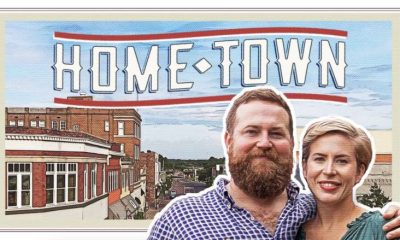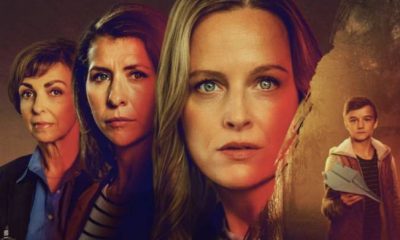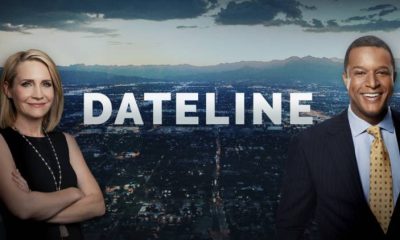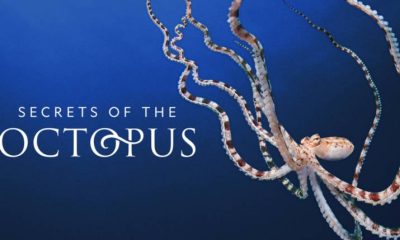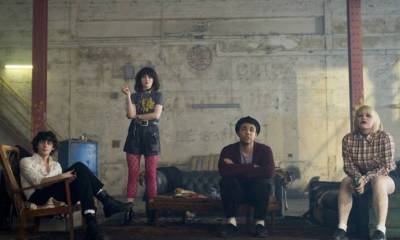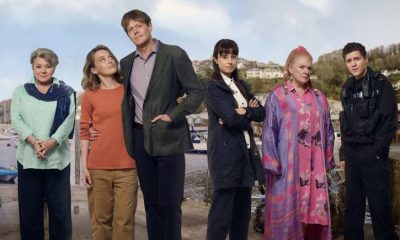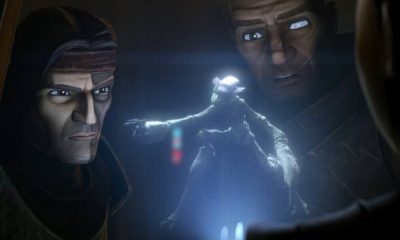Features
The Godfather: Vito Corleone and Sons
What makes a classic? What makes a work of art? In a 25-year anniversary remembrance of The Godfather in the August 1997 issue of Premiere, writer Peter Biskind called The Godfather “The only truly adult movie ever made.” He has a point. The action sequences and continuously escalating level of violence remain as vital and contemporary as anything currently on-screen, with a few crucial differences. The violence in The Godfather is ritualistic and realistic, never cartoonish. Action and violence are integral to the Godfather saga, but nuance, character, and plot are what truly move the story. The Godfather is a gangster film like no other in that, in some ways, it and its two sequels are not gangster films at all. The Godfather is an American family saga, an immigrant’s tale. Nearly 30 years after its release, it still strikes a chord in the American psyche.
Certainly, no one other than perhaps Francis Coppola even imagined any of this when Coppola was chosen to helm The Godfather. Mario Puzo’s novel became a huge best-seller during the Vietnam era, probably precisely because of its escapist nature. The book is a sprawling, impossible-to-put-down, melodramatic account of Vito Corleone and his sons, packed with pungent dialogue and vividly drawn action. In Biskind’s account, Paramount wasn’t even that interested in filming the book. It was buying a name to exploit. Hiring Coppola changed all that. To watch The Godfather and its sequels is to watch the breadth of one man’s vision.
Tale of a Tight-Knit Family
From the start, Coppola saw The Godfather as the story of a family. Peter Bart, then vice president of production at Paramount quotes Coppola in the Premiere article as saying, “You know, I don’t really want any violence in this picture.” Given the body counts in the three Godfather movies, this is probably a disingenuous remark, but it telegraphs Coppola’s thinking.
First and foremost, the Corleones are a family, a tight-knit family in the Italian tradition that will sacrifice all for the success and the security of its members. As Vito says, “I worked my whole life, I don’t apologize, to take care of my family… That’s my life.” This particular family runs a business, a regional business in father Vito’s hands, but a healthy business with plenty of room for further expansion. That this business involves gambling, prostitution, extortion, murder, and other forms of criminal enterprise that may put it on the FBI’s wanted list and make it ripe for particularly hostile and bloody takeover bids from competing concerns takes nothing away from the fact that this is how the Corleones and their associates put food on the table and a roof over their heads.
That The Godfather is about a family and a family business is evident from the opening sequence, Connie Corleone’s wedding. On the outside is the wedding reception, elaborate and expensive, befitting a rich man’s cherished only daughter. At the wedding reception are hundreds of guests; a feast that, given the wartime constraints of August 1945, when the wedding takes place, only an accomplished black marketeer could provide; the proud mother singing with the band, the happy throng dancing a tarantella; one of the Don’s murderous capo regimes dancing with a little girl, her small feet balanced on his large ones. On the inside, the proud father, Vito (Marlon Brando), conducts his business, the sentimental CEO granting his supplicants’ wishes. As youngest son Michael (Al Pacino) puts it, “No Sicilian can deny a request on his daughter’s wedding day.”
Establishing the Don’s Character
Character is established in this opening sequence. There are small gestures, such as Vito playing with a cat while receiving supplicants and oldest son Sonny (James Caan) smashing a paparazzo’s camera, then throwing wadded bills at the photographer. There are larger gestures, as well: Vito’s insistence on respect from those that come to him, the way they call him “godfather” and kiss his ring as if seeking relief from the Pope.
Vito’s manner changes with each person he sees: stern and disappointed with the undertaker, Bonasera, kind and respectful to Nazarene the baker, gently tolerant of his enforcer, Luca Brazzi, a hectoring, angry father to the singer, Johnny Fontaine. Paramount was against casting Marlon Brando as Vito. He was a has-been with a bad reputation. Coppola’s casting gamble pays off big from this opening sequence. To buy Coppola’s vision of The Godfather, it is necessary to believe Vito as a father, husband, and businessman and the 47-year-old Brando, aged by makeup and lumbering body language comes across as the warm and respected paterfamilias. Vito and his sons are not anti-heroes. They are heroes the audience is meant to identify with, or as David Thomson puts it when discussing Michael in his A Biographical Dictionary of Film, “…we are his accomplices.”
Clarifying the Pecking Order
We are introduced to Michael, older brothers Sonny and Fredo (John Cazale), and foster brother Tom Hagen (Robert Duvall) in this opening sequence. At the start the pecking order is clear. Sonny is a hothead, but devoted to his father’s business and the heir apparent. Tom is the consigliori-designate, conservative, sensible, humble in the bosom of his adopted family. Fredo is weak and childlike, to be protected like a woman or a child, not someone to be trusted with any great responsibility. Then there’s Michael, the son who got away. War hero, scholar, disdainful of the family business, except for the evident delight he takes in revealing dark family secrets to his girlfriend, Kay (Diane Keaton), a hint beneath the boyish grin of more sinister leanings.
Trajectory of Corruption
The Godfather is a gorgeously photographed film with a keen sense of dark, light and color. This is used to stark effect at the beginning with the wedding shot in bright daylight, the full light of life and a new beginning contrasted with the dark interior of Vito’s den and his shadowy dealings within. Later as the film settles into its tale of gang warfare and Michael’s corruption, even the daylight becomes corrupted. The entire film is awash in ambers, golds and grays, gloom enveloping light.
The middle section of The Godfather concerns itself with the Corleone family business at work and under threat from the competition, with Michael’s ascendancy and with the decline of Vito. The violence in this section lacks the passion and ritualistic finesse that marks the climax of the film. One of The Godfather’s greatest achievements is the way the film manages to reduce its explosive violence into normal business practices and its gangsters to bourgeois businessmen.
The brutality is both explosive and workmanlike, extraordinary and banal. The Corleones’ capo Clemenza leaves his house to oversee a murder and his wife reminds him to pick up some cannoli. After the hit, Clemenza will tell the shooter, “Leave the gun. Take the cannoli.” A family associate, Luca Brazzi, is garroted and the Corleones are sent a dead fish wrapped in newspaper. “Luca Brazzi sleeps with the fishes.” Thug wit. When the rival families fight their gang war — “go to the mattresses” — what is striking about this sequence is that between shots of blaring headlines and garish stills of massacred bodies are scenes of mundane normality: A mobster entertains his allies by playing the piano. Mobsters chow down on spaghetti. Someone writes a letter while sitting on his mattress. Even Vito’s shooting is pedestrian as he lets his guard slip momentarily to buy some fruit.
Family members, particularly Sonny, are constantly reminded that, “It’s business. It’s not personal.” Violent death is merely a by-product of business, a loss on the balance sheet. As Solozzo, the Corleone’s rival puts it, “I don’t like violence …I’m a businessman. Violence is a big expense.” When those expenses become too great, the cost too high, the violence stops.
Michael’s corruption stems from his impulse to protect his family. His father threatened, Sonny busy leading the war, Fredo and Tom useless, only Michael can step in to save his family. That he will lose his soul in the process is a price he is willing to pay. Pacino’s face is impassive as he accepts the fate he will later relish. Only the soundtrack as Michael prepares to move against his father’s enemies reveals any inner turmoil at all: the sound of a train rises on the soundtrack while Sollozzo’s voice drops as if he is speaking to Michael from faraway. The sound may be Michael’s conscience, but, then again, it just may be the final realization that once he pulls the trigger, there can be no more illusion of escape. Marlon Brando in the make up chair.
Michael’s later Sicilian idyll serves final notice to Michael that in joining in the Corleones’ murderous business, he has forever sealed himself off from even the illusion of peace of mind or a happy fate. The contrasts are startling between the beautiful, bucolic countryside and his guards with their carbines and between his beautiful, innocent wife Appolonia and her dreadful fate. Michael asks the local patriarch Don Tomassino where all the men have gone in his father’s ancestral village and the Don answers mournfully, “They’re all dead from vendettas.”
In this middle section, Vito and Michael essentially trade places. Vito, in his decline, becomes warmer, introspective, but expansive to his family. Michael, seizing power, turns inward, as well, but it is not introspection that drives Michael, but a solitary chill. Both men are motivated by the need to care for and protect their family, but whereas Vito felt the warmth and comfort of his family returned, Michael is denied any such feeling.
Blessings Meeting Curses
Coppola’s Italian-American upbringing serves him well at The Godfather’s climax. All three Godfathers climax with ritualistic blood orgies, but the sequels lack the irony of the first. The Godfather’s climax makes a neat play on the double-meaning of the word “godfather.” As his nephew’s Godfather, Michael is sworn to attend to the child’s religious education and moral upbringing in the absence of his nephew’s father. As The Godfather in the family business, he ensures the absence of the boy’s father. In a business where associates kiss his ring as if he is the Pope, the irony of the two meanings are impossible to ignore. Seen in this light, Michael’s actions on his nephew’s christening day seem to be the product of deadly logic and mordant wit.
The violent climax to The Godfather paralleled with the baby’s baptism signals that Michael is not the don his father hoped he would be. Michael might expand the business and he might succeed beyond the family’s wildest dreams, but he has lost sight of what it is all for, the family. He has also forgotten his own credo, “It’s not business. It’s personal.”
The Godfather is all light and dark. The bright light of day during the wedding reception contrasts with the darkness indoors. Nino Rota’s score and Carmine Coppola’s lively tarantellas contrast with the violence on screen. Sonny’s rash passion contrasts with Tom’s levelheadedness and Michael’s cold decisiveness. A child’s baptism contrasts with his father’s murder. Finally, Vito’s calm, reasoned paternalism contrasts with Michael’s dark avenging angel.
-
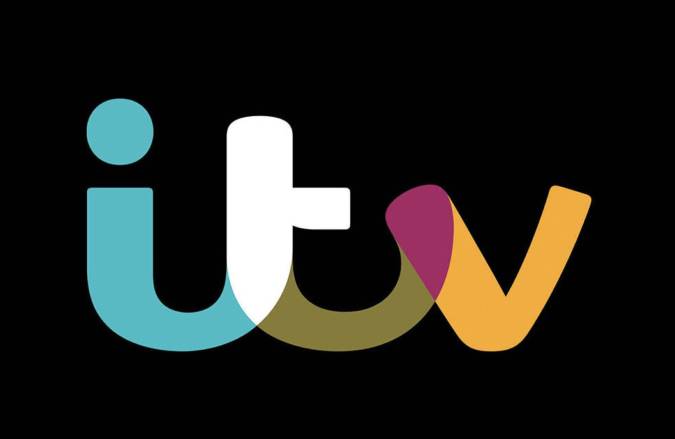
 News2 days ago
News2 days agoClaim Your Cash? Britain’s Hidden Fortune – Tonight, 18 April 2024, ITV1
-

 News2 days ago
News2 days agoJeopardy! Recap, Winner and Today’s Final Answer Wednesday, April 17, 2024
-

 News2 days ago
News2 days agoThe Hotel Inspector: Chiltern’s View Lodges, 18 April, 2024, Channel 5
-

 News1 day ago
News1 day agoJeopardy! Recap, Winner and Today’s Final Answer Thursday April 18, 2024


